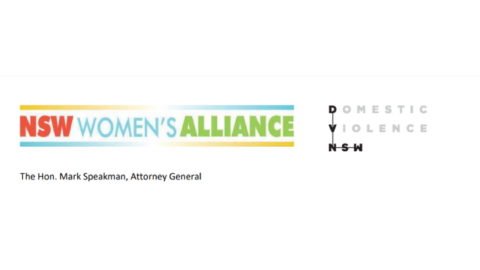Domestic Violence Groups Call for Greater Community Consultation for Coercive Control Laws

Midnight on Wednesday saw the “short six-week consultation period” close on submissions to the NSW government’s coercive control legislation, and an impressive list of domestic and family violence advocates are calling for an extension, as, currently, the draft is potentially harmful.
Released on 22 July, the exposure draft Crimes Legislation Amendment (Coercive Control) Bill 2022 is the Perrottet government’s response to the Joint Select Committee on Coercive Control report that recommended a set of laws that define and criminalise coercive control as a form of domestic abuse.
The inquiry found that coercive control sees perpetrators using a gradual escalation of tactics to “take away their partner’s autonomy and freedom”, and this behaviour is a common factor in the lead up to intimate partner homicides.
The 230-odd key DFV advocates released an open letter this week, calling on NSW attorney general Mark Speakman to provide the extension, as there has not been adequate consultation with victim-survivors, and there are three key loopholes involved in the draft legislation.
Those who’ve signed the letter, including Rosie Batty, Yvonne Weldon and Professor Kate Fitz-Gibbon, have warned that without further consultation, especially with victim-survivors, the NSW Liberal Nationals would be passing laws that don’t protect the very people they’re designed to.
Key omissions defined
“Our justice systems are already overwhelmed dealing with current offences, with court dates more than 12 months in advance in some areas,” said Domestic Violence NSW (DVNSW) interim chief executive Elise Phillips.
“The draft bill aims to provide justice for victim-survivors, but rushed legislation increases the risk that the prosecution will struggle to provide sufficient evidence to prove coercive control beyond reasonable doubt, which will result in low conviction rates,” she continued.
The first of the three issues set out by the advocates in the open letter headed by NSW Women’s Alliance and DVNSW is that coercive control is not clearly defined, and definitions need to be consistent across the Crimes Act 1900 (NSW) and other domestic violence laws.
The second problem identified is that the draft laws currently criminalise controlling behaviour in terms of intimate partner relationships, so when this type of abusive relationship develops amongst family members or within other relationships, such as with a carer, the behaviour isn’t captured.
The final omission, the advocates assert, is a need for a taskforce formed prior to the bill’s passing to provide oversight to the legislative process, and to ensure cultural reforms and that systems, such as law enforcement and support services, comprehend and are prepared for the new laws.
“We must ensure any new legislation is done with adequate planning, training and consultation,” Phillips told Sydney Criminal Lawyers.
The draft legislation
The Coercive Control Bill inserts new section 54D into the Crimes Act to create the offence of abusive behaviour towards current or former intimate partners, which carries a maximum penalty of 7 years prison time.
The crime involves an individual perpetrating abusive behaviour, intended to cause mental or physical harm, upon an intimate partner either intentionally or recklessly. And a reasonable person should consider this behaviour to cause fear of violence, and seriously impact the subject’s daily life.
Abusive behaviour can entail violence or threats, coercion or control, threatening a child, stalking, monitoring, “repeated derogatory taunts”, property damage, causing harm to an animal or the deprivation of liberty. And a defence that conduct was reasonable is included in the draft.
The bill also inserts a definition of domestic abuse into the Crimes (Domestic and Personal Violence) Act 2007 (NSW), which outlines it can be physical, mental or economic and goes on to list a number of pre-existing offences it can consist of, such as assault, sexual assault and property damage.
Statutory issues
“We believe that it is confusing to have two different definitions – one in the Crimes (Domestic and Personal Violence) Act and a different definition in the Crimes Act,” reads the DFV advocate open letter. “This will result in perpetrators not being held accountable as there will be loopholes.”
Another key flaw in the government bill is that it doesn’t capture coercive control relationships within families, extended families, as well as other domestic arrangements, such as carer-patient relationships.
The open letter authors underscore that an extension of the consultation period should involve prioritisation of input from those with lived experience, especially from Aboriginal and Torres Strait Islander communities.
DVNSW policy, advocacy, and research manager Renata Field explained in April that there already exists an issue with NSW police officers misidentifying First Nations women, who are the victims in a particular domestic violence incident, as the perpetrator of the crime on attending the scene.
As Noongar woman Dr Hannah McGlade told National Indigenous Times mid-last year, the common misidentification of First Nations women as the perpetrator in domestic incidents where they’re actually the victim, is set to rise with the criminalisation of coercive control.
“The emphasis on new criminal laws is problematic particular in the view of child removal, the link with policing and the lack of reform to address inequality in law today,” the Curtin University professor added.
Further reflection
In its January 2021 submission to the coercive control committee, DVNSW set out that coercive control is a “symptom of wider gendered inequality” and in order to eliminate this form of abuse, processes that foster greater gender equality should be employed.
The NSW peak body for specialist domestic and family violence services further stressed the need for “thorough, culturally safe, consultation” with First Nations individuals, specialist workers and organisations prior to the passing of coercive control laws.
And as for the open letter requesting an extension of time, a great chunk of the DFV sector is currently waiting on a reply from NSW attorney general Speakman.
“We must ensure police, the courts and the legal fraternity are trained appropriately and cultural and systems reforms are implemented, to ensure victim-survivors of coercive control are not re-traumatised,” the open letter concludes.
“We must take the time to criminalise coercive control in order to keep women and children in NSW safe.”








